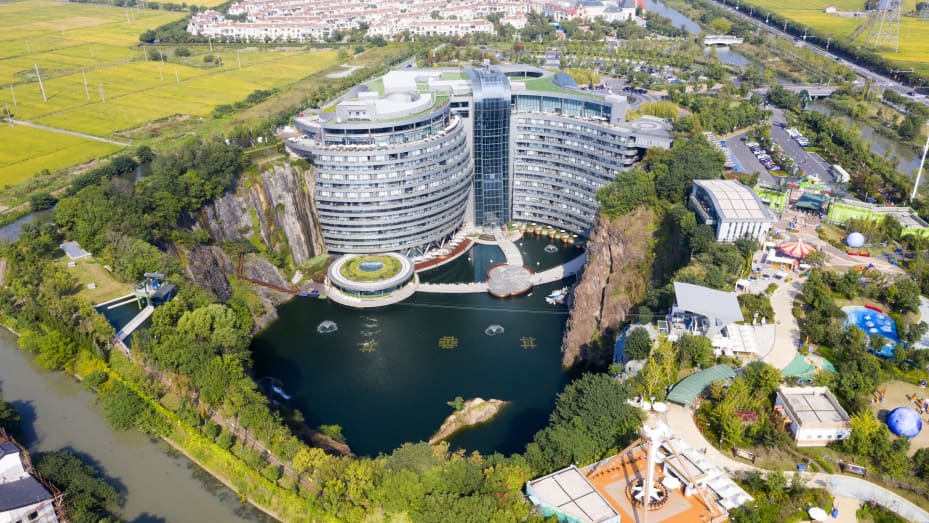- Shimao, one of China’s healthiest real estate developers, has reportedly defaulted — a sign of how more pain is ahead for the heavily indebted industry.
- “The reason that the market is a bit more worried about this case compared to the other developers that [fell] into trouble [is] because Shimao is considered … a relatively healthy name,” Gary Ng, Asia-Pacific economist at Natixis, said in a phone interview Friday.
- He noted that Shimao met all three of Beijing’s main requirements for developers’ debt levels, and said the company’s struggles reflected broader pressure for business transformation in the current environment.

BEIJING — One of China’s healthiest real estate developers has reportedly defaulted, a sign of how more pain is ahead for the heavily indebted industry.
Shimao Group shares briefly plunged more than 17% Friday after Reuters reported the property developer failed to make full repayment on a trust loan. A subsidiary of the company subsequently said in a filing it was in talks to resolve the payment. Shares closed more than 5% lower in Hong Kong, while most major developers posted gains for the day.
China’s massive real estate industry has come under pressure as Beijing sought to reduce developers’ reliance on debt in the last two years. Global investors have mostly focused in the last several months on China Evergrande’s ability to repay its debt and the potential spillover to China’s economy.
In recent months, a few other developers have also started reporting financial strains. But Shimao’s troubles stand out.
“The reason that the market is a bit more worried about this case compared to the other developers that [fell] into trouble [is] because Shimao is considered … a relatively healthy name,” Gary Ng, Asia-Pacific economist at Natixis, said in a phone interview Friday.
He noted that Shimao met all three of Beijing’s main requirements for developers’ debt levels — the so-called “three red lines” policy which places limits on debt in relation to a company’s cash flows, assets and capital levels.
Ng also said the company’s struggles reflected broader pressure for business transformation in the current environment.
Investors increasingly pessimistic
Shimao missed a 645 million yuan ($101 million) payment, according to a China Credit Trust letter seen by Reuters on Thursday. The report cited two unnamed sources as confirming the letter.
Shimao and China Credit Trust did not immediately respond to CNBC’ request for comment on the report.
[“source=gsmarena”]
